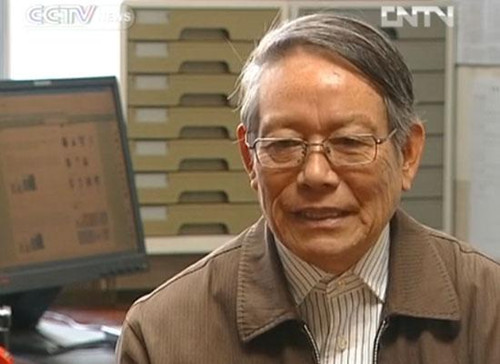
Ma Huaide, Vice President of China Univ. Of Political Science & Law
China's growing number of micro-bloggers are becoming a force to be reckoned with, in exposing abuses of power. Weibo, China's equivalent of Twitter and Facebook, is the main weapon of choice, in fighting corruption and official misdeeds often with uncanny speed, and a wealth of details.
These corrupt officials were exposed first and foremost through China's micro-blogging sites, most notably Weibo.
Their fall from grace followed the same path. After their wrongdoings were publicized on the internet, the local discipline inspection commissions stepped in to investigate. They were removed from their posts, with punishments pending.
These corrupt officials were never used to be challenged by grassroots netizens, but the development of the Internet and social networking services, like the weibo, has made a difference. With micro-bloggers sharing information every minute, officlas now face a greater level of scrutiny than ever before.
The public voice has never been as strong in supervising power as it is today in the age of the micro-blog. Professor Huang Zongliang, Dept. Of Intl' Relations, Peking Univ., said, "Corruption has reached an insufferable level today. And every netizen can be a potential citizen journalist, responsible for exposing wrongdoing. The discipline inspection commissions have been faster to respond to these incidents recently. This is an encouraging sign. "
The message from the top is clear. The Communist Party of China's 18th Congress report calls the fight against corruption a clear-cut and long-term political commitment.
General Secretary of the CPC Central Committee Xi Jinping reiterated the message. On the 30th anniversary of the current edition of China's Constitution, Xi stressed the authority of the Constitution, and the rule of law.
Ma Huaide is one of eight experts who took part in a recent meeting with the CPC Central Commission for Discipline Inspection. He says the prominence of Weibo highlights inadequacies in traditional anti-corruption mechanisms.
Ma Huaide, Vice President of China Univ. Of Political Science & Law, said, "For example, there've been loopholes in enforcing the law, and lack of supervision over law-enforcement institutions. Meanwhile, even though we've set up a number of laws to ensure clean governance, the regulations are not complete."
During his meeting with high-level officials, Ma proposed three further laws, in an attempt to restrain power in a scientific manner, and make governmental affairs more transparent.
Ma Huaide also said, "The message from the top is that in further combating corruption, the CPC will put more emphasis on system building to stop corruption at source; Secondly, loopholes in existing laws and regulations will be closed; And thirdly, a long-term strategy will be established, rather than relying on sporadic action. "
Until then, Weibo remains an emerging and popular means of keeping an eye on those who abuse power.
But Ma Huaide also warns of a downside. Online commentary can easily become a channel to spread rumor, gossip, and personal abuse. He believes more efforts should be made to incorporate Weibo as a legal means to fight corruption.

Copyright ©1999-2011 Chinanews.com. All rights reserved.
Reproduction in whole or in part without permission is prohibited.